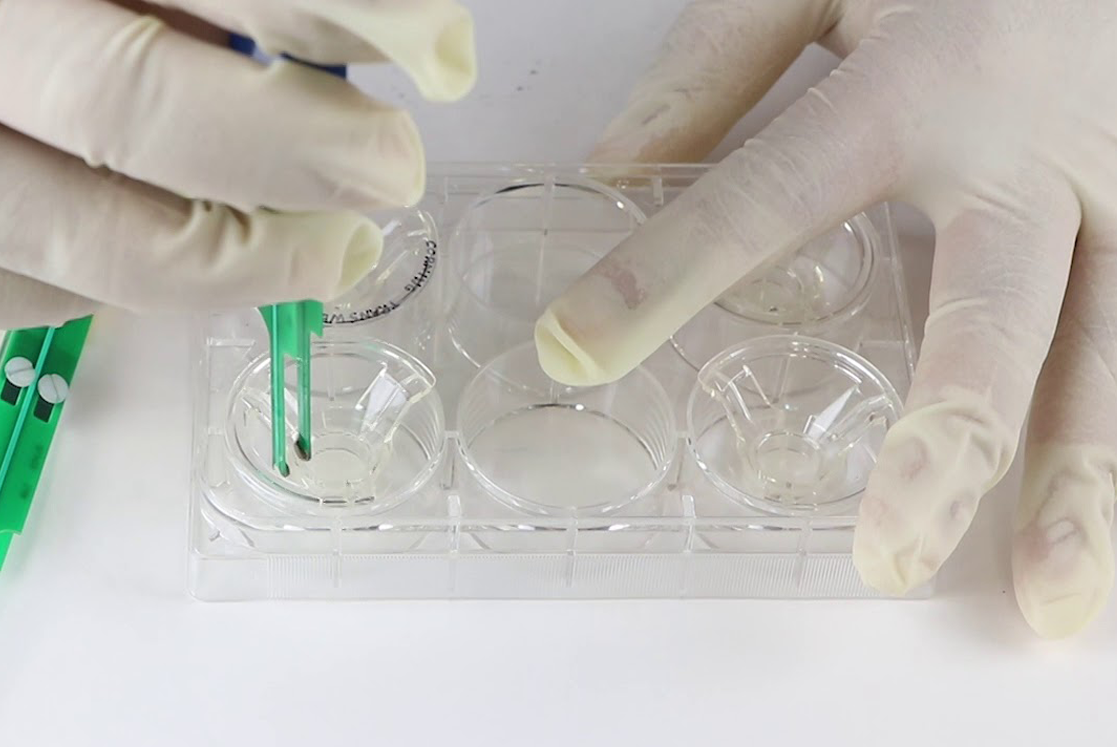
Our PDO Monolayers are designed to recapitulate the composition of the intestinal epithelium in vivo, including stem cells as well as all differentiated lineages. Starting from patient intestinal crypt biopsies and thanks to our proprietary organoid technology, we have designed a physiological system that allows you to explore inflammatory response, cytotoxicity, and barrier function, and to investigate the protective effect of your compound on the gut epithelium against cytokine-induced damage.
Work with the experts in gut biology and advance with confidence your preclinical candidate to the clinic.
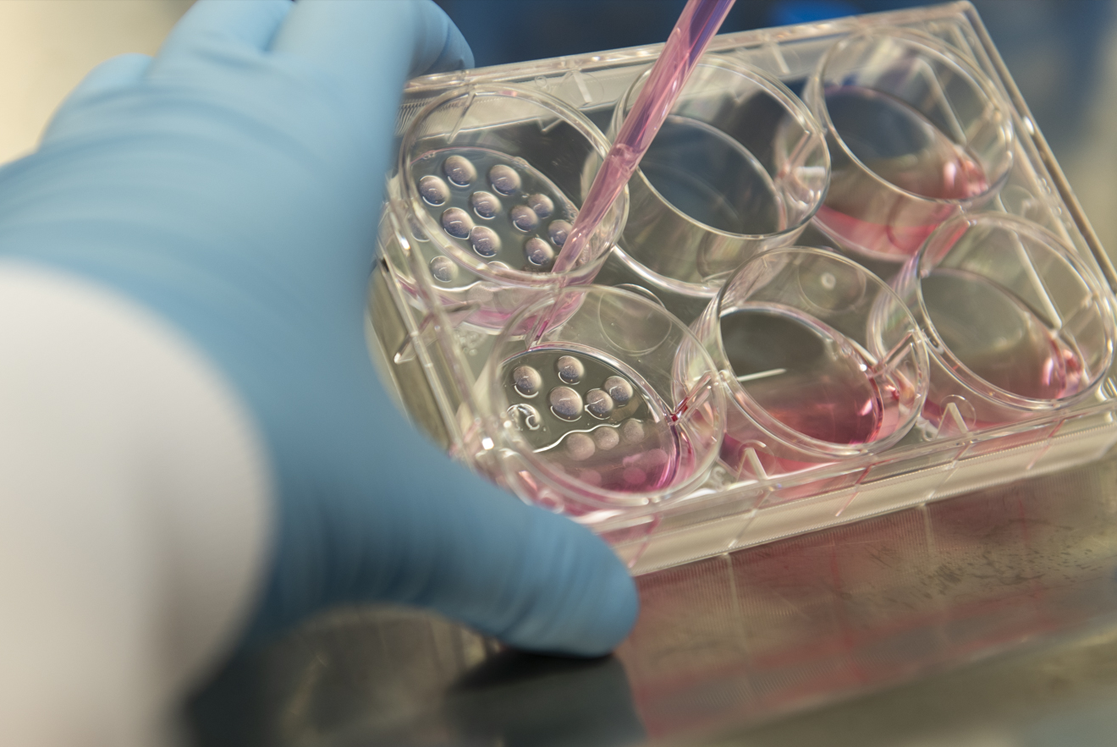
The development of successful therapies for inflammatory diseases requires evaluating a drug’s impact on the epithelium as well as the immune and stromal cells. Additionally, the role of the microbiome in triggering inflammatory responses needs to be considered. Modeling these intricate interactions often compromises scalability, posing a challenge for preclinical drug development. We offer unique organoid co-cultures to facilitate the development of candidates targeting pro-inflammatory fibroblasts and immune cells within the gut epithelial microenvironment. Additionally, we also have established co-cultures with gut microbiome that allow screening for preventive therapies in IBD.
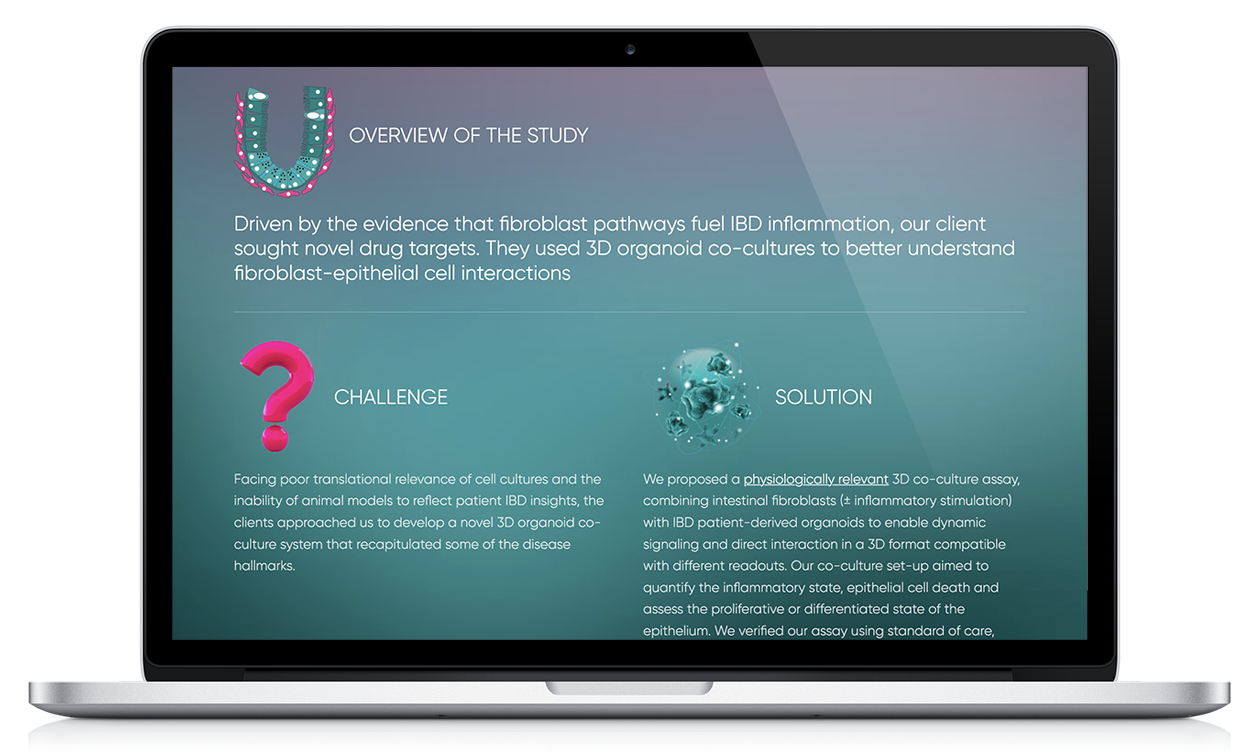
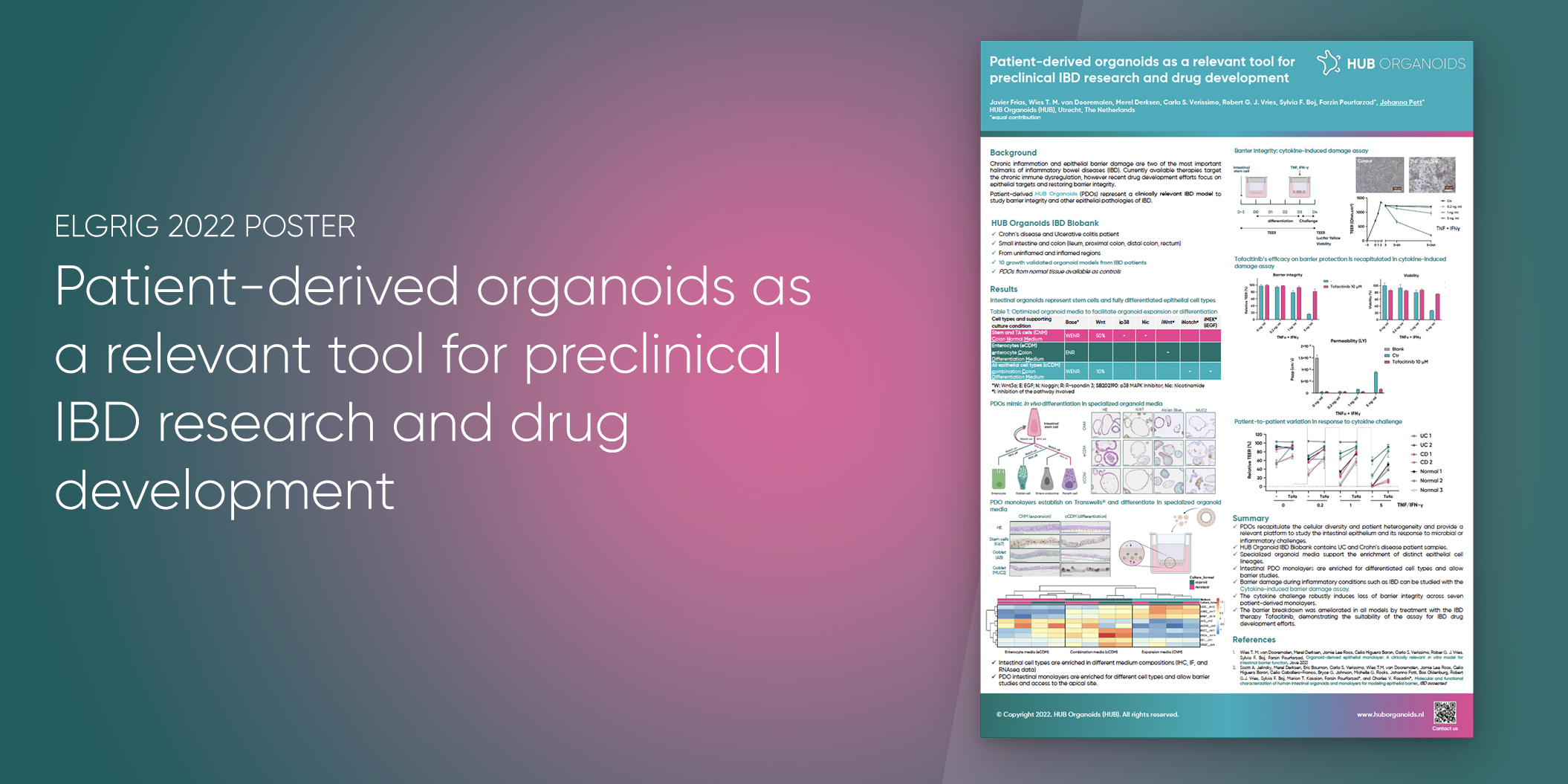
POSTER
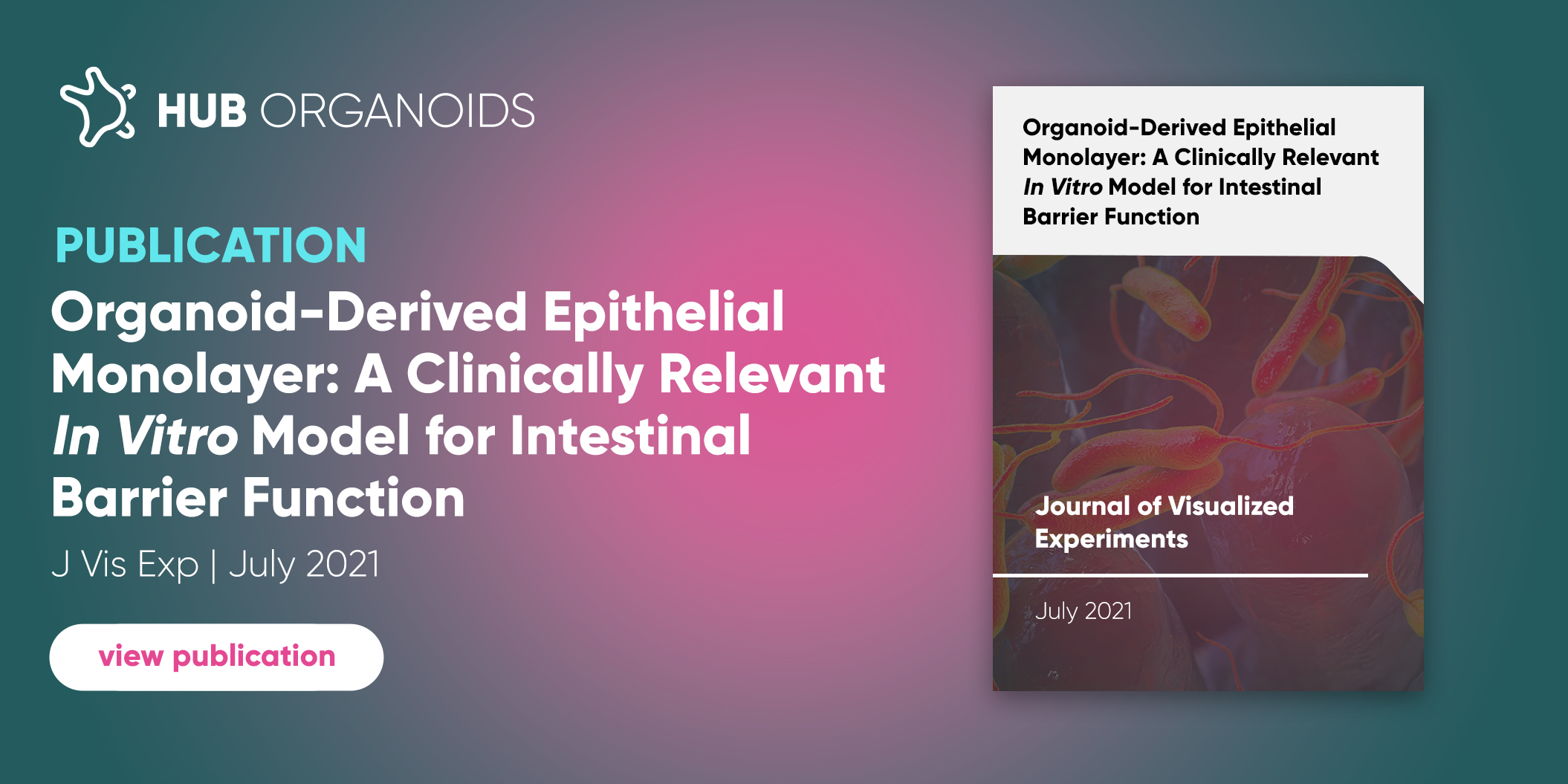
PUBLICATION